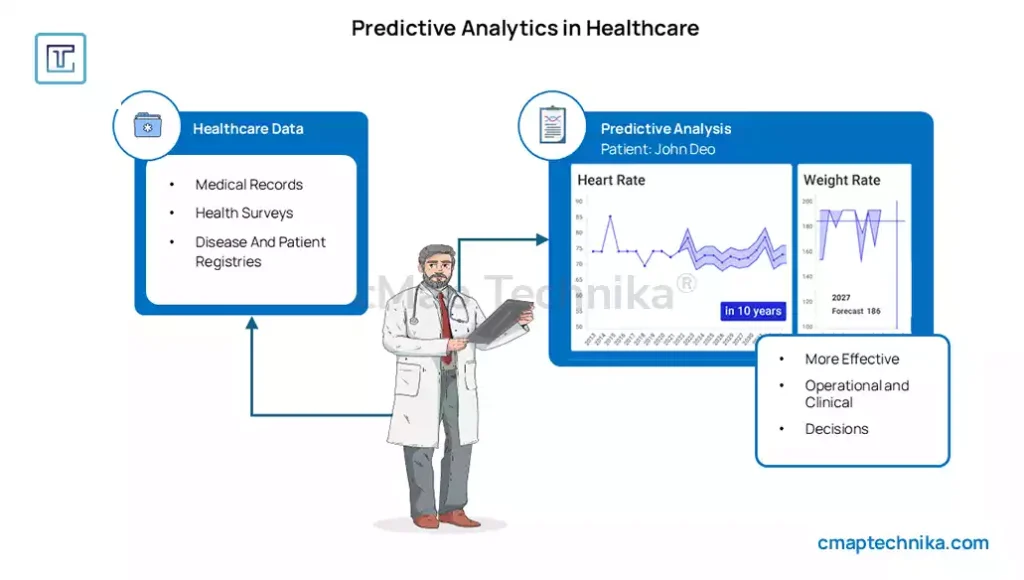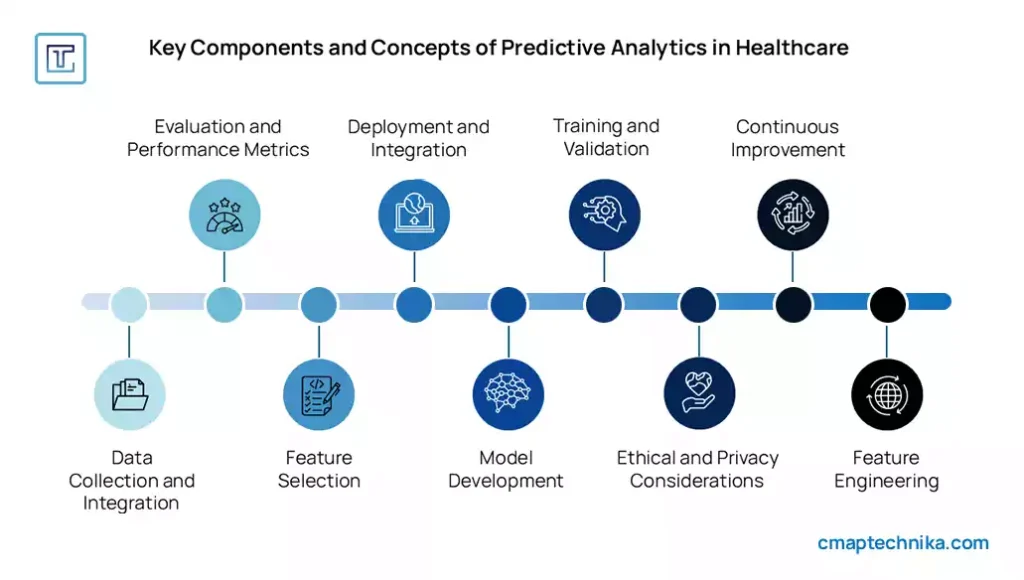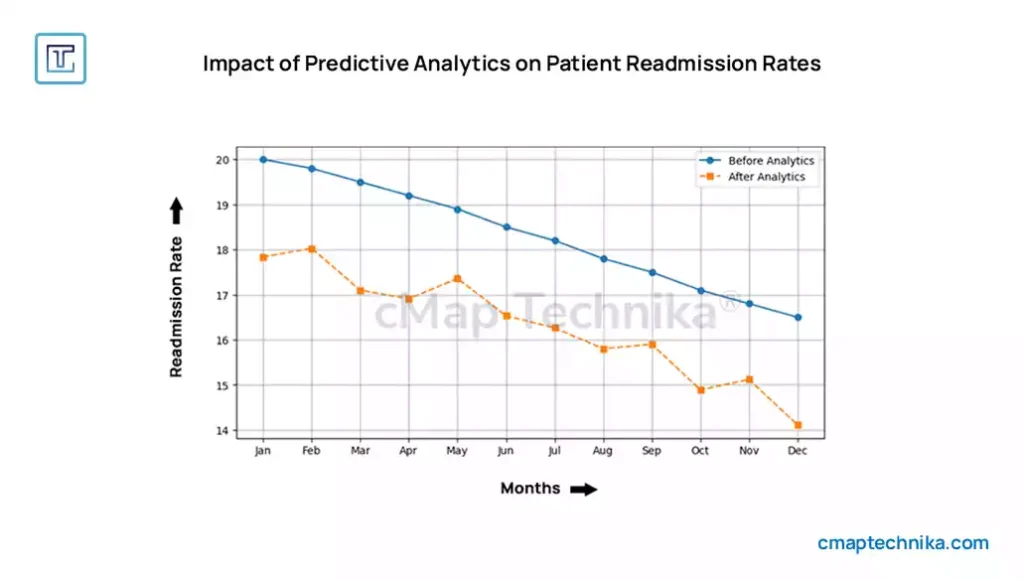The healthcare industry is in the midst of a data revolution. As technology continues to evolve, healthcare organizations are leveraging data analytics to transform patient care, enhance operational efficiency, and improve clinical decision-making. The power of data analytics in healthcare lies in its ability to extract meaningful insights from vast amounts of information, allowing providers to make better-informed decisions that improve both patient outcomes and operational performance.
At Waltcorp, we understand that healthcare providers face complex challenges in an environment that demands both innovation and efficiency. Our strategic consulting services help healthcare organizations unlock the potential of data analytics to drive change, optimize processes, and deliver exceptional care. In this article, we’ll explore how harnessing data analytics is ushering in a new era of predictive insights and reshaping the future of healthcare.
The Growing Importance of Data in Healthcare

Healthcare has long been data-rich, with medical records, lab results, imaging data, and treatment histories being collected across multiple systems. However, much of this data has remained underutilized, locked in silos or only used in a retrospective capacity. The rise of electronic health records (EHRs), wearables, and connected devices has exponentially increased the amount of data generated in healthcare, creating both an opportunity and a challenge.
With the right tools and strategies, healthcare organizations can now extract valuable insights from this vast pool of data to improve decision-making, predict patient outcomes, optimize operations, and reduce costs. Data analytics is no longer just a tool for reporting; it has become an integral part of transforming healthcare into a more personalized, efficient, and proactive system.
The Role of Data Analytics in Healthcare Transformation

Data analytics plays a crucial role in reshaping healthcare across several key areas. Here’s a closer look at how data analytics is driving change:
1. Improving Clinical Decision-Making
In the past, clinical decision-making often relied on a mix of experience, intuition, and static patient histories. Today, predictive analytics enables healthcare providers to make more informed and timely decisions. By analyzing patient data in real-time, clinicians can gain insights into the likelihood of adverse events, such as complications, readmissions, or disease progression.
For example, machine learning algorithms can analyze patient data—such as lab results, vitals, medical history, and even social determinants of health—to predict the likelihood of future health events. This allows clinicians to take proactive steps in patient care, leading to improved outcomes and reduced risk. With predictive analytics, doctors can tailor treatments to the individual needs of patients, making care more personalized and precise.
2. Enhancing Operational Efficiency
Data analytics is also a game-changer when it comes to improving operational efficiency in healthcare organizations. From optimizing staffing schedules to streamlining supply chain management, data-driven insights help healthcare providers identify inefficiencies and areas for cost savings.
For instance, by analyzing patient flow data, healthcare organizations can optimize bed utilization and reduce patient wait times. Predictive analytics can be used to forecast patient volume, helping hospitals and clinics allocate resources more effectively. Similarly, data analytics can identify inefficiencies in inventory management, reducing waste and ensuring that critical supplies are always available when needed.
Moreover, data analytics can enhance administrative efficiency by automating repetitive tasks, such as billing and claims processing. This not only reduces the burden on staff but also accelerates revenue cycles, contributing to financial stability and sustainability.
3. Personalizing Patient Care
In the era of personalized medicine, data analytics is playing a pivotal role in tailoring treatment plans to individual patients. By analyzing a patient’s medical history, genetics, lifestyle, and other factors, healthcare providers can offer more customized care that is better suited to the patient’s unique needs.
For example, genomics and molecular data can be used to design personalized cancer treatment plans, optimizing drug regimens based on the patient’s genetic makeup. Wearables and mobile health applications also provide a continuous stream of data, allowing providers to monitor patients remotely and intervene when necessary. This level of personalization not only improves outcomes but also enhances the patient experience by providing care that is more attuned to their specific health concerns.
4. Predicting and Preventing Health Risks

One of the most transformative aspects of data analytics in healthcare is its ability to predict and prevent health risks before they occur. Predictive analytics allows healthcare organizations to identify at-risk patients and intervene early, improving long-term outcomes and reducing the need for more expensive treatments down the line.
For example, data analytics can help predict chronic disease onset by analyzing patterns in patient behavior, lab results, and demographic factors. By identifying high-risk individuals early, healthcare providers can implement preventive measures such as lifestyle interventions, regular monitoring, and tailored treatment plans to mitigate the progression of disease.
Additionally, by analyzing trends in patient data, healthcare organizations can predict outbreaks of infectious diseases, allowing them to prepare and respond more effectively. In this way, data analytics not only enhances individual patient care but also plays a key role in public health management.
5. Optimizing Financial Performance
Data analytics also offers substantial benefits for healthcare organizations in terms of financial performance. By analyzing financial data, healthcare providers can identify cost drivers, reduce inefficiencies, and improve revenue cycle management. Predictive analytics can also forecast reimbursement rates, helping organizations plan and allocate resources more effectively.
For instance, by analyzing claims data, healthcare providers can identify trends in denials or delayed payments, allowing them to streamline their billing processes and reduce administrative burdens. This can lead to faster reimbursements and improved cash flow, contributing to the overall financial health of the organization.
Furthermore, data-driven insights can assist in setting more accurate pricing models, ensuring that healthcare organizations remain competitive while maintaining profitability.
6. Enhancing Population Health Management
Data analytics is a crucial tool in managing population health, particularly in the era of value-based care. By analyzing data across large patient populations, healthcare organizations can identify trends, monitor health outcomes, and design more effective preventive care programs.
For example, data analytics can reveal patterns in chronic disease prevalence, enabling healthcare organizations to create targeted interventions for at-risk populations. By integrating social determinants of health into analytics, healthcare providers can better understand the broader factors influencing health outcomes and take a more holistic approach to care.
Population health management also benefits from the use of predictive analytics to identify individuals who may benefit from early interventions. By taking a proactive approach, healthcare organizations can reduce hospital admissions, improve patient quality of life, and lower healthcare costs overall.
Overcoming Challenges in Data Analytics Adoption
Despite the transformative potential of data analytics, healthcare organizations face several challenges in its implementation. These include data privacy concerns, data integration issues, and the need for specialized skills to interpret and act on data insights.
Healthcare organizations must ensure that they adhere to strict data privacy regulations such as HIPAA when collecting, storing, and analyzing patient data. Furthermore, many organizations struggle with integrating data from disparate systems, which can make it difficult to gain a unified view of patient information. Consultants can help healthcare providers overcome these hurdles by guiding them through the selection and implementation of the right data analytics tools and ensuring that data is managed securely and effectively.
Conclusion
Data analytics is revolutionizing the healthcare industry, unlocking new possibilities for improving patient care, enhancing operational efficiency, and optimizing clinical decision-making. By harnessing the power of data, healthcare organizations can predict health risks, personalize care, and proactively address inefficiencies, all while improving financial performance.
At Waltcorp, we work closely with healthcare providers to help them navigate the complexities of data analytics. Through strategic consulting, we enable organizations to leverage data-driven insights that lead to better patient outcomes, increased operational efficiency, and long-term sustainability. As healthcare continues to evolve, data analytics will remain at the forefront of driving change, ensuring that providers are well-equipped to meet the demands of the future.






